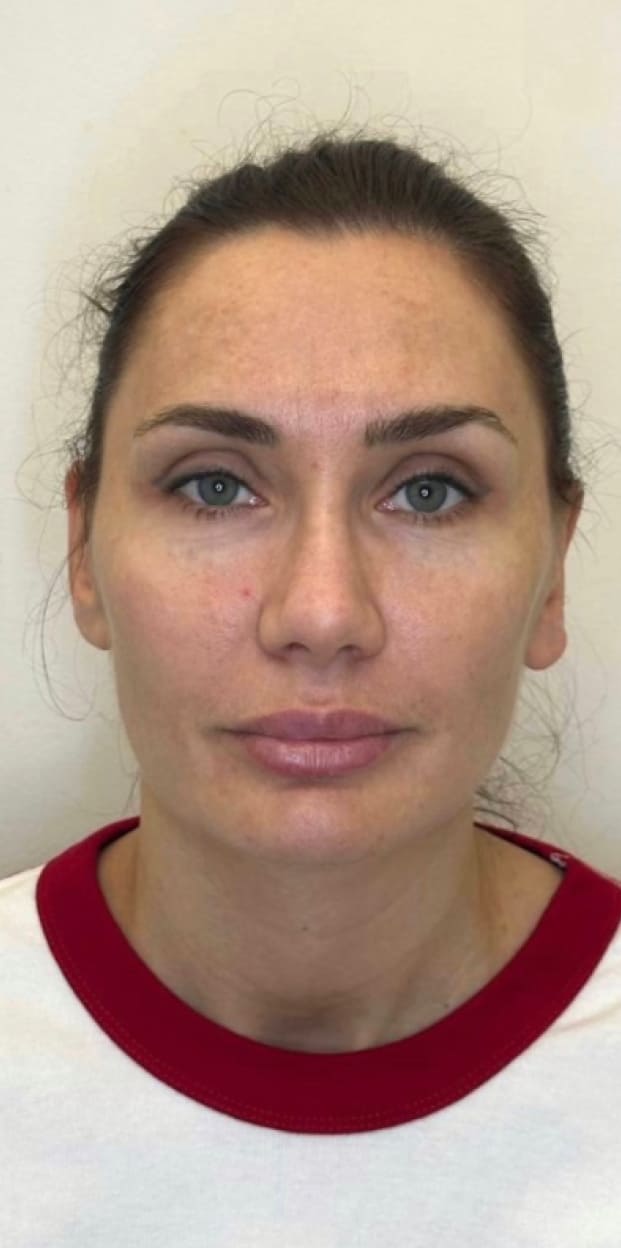Endoscopic
Facelift
What is it?
An endoscopic facelift is a modern surgical procedure aimed at facial rejuvenation by correcting tissues using an endoscope.
An endoscope is a special medical instrument equipped with a thin tube, built-in camera, and light source.
It allows the surgeon to see the deep layers of facial tissues through small incisions, significantly reducing the invasiveness of the procedure.


When is an endoscopic facelift performed?
What are the techniques for performing an endoscopic facelift?
Tissues in the cheek area are lifted, sagging and smoothing of nasolabial folds are eliminated
Incisions are made in the temporal area or inside the oral cavity
Cheek fat pads are lifted and fixed in a new position, improving facial contours
Improves the contours of the lower jaw, eliminates skin sagging in the neck area and "bulldog cheeks"
Incisions are made behind the ears or under the chin
The endoscope allows the surgeon to remove or redistribute fatty tissue and tighten the neck tissues
Performed to eliminate horizontal forehead wrinkles, correct vertical wrinkles between the eyebrows, lift drooping eyebrows, and reduce the “tired” or “sad” appearance
Incisions are made in the hairline
The endoscope corrects and tightens the forehead muscles, and the tissues are fixed in a new position
Rejuvenation of the entire face is performed, eliminating wrinkles and sagging in multiple areas simultaneously
Combines forehead lift, midface, and lower face lift
How is the facelift procedure prepared?
Consultation with a plastic surgeon to analyze age-related changes and determine an individual facelift strategy
Conducting standard tests and examinations (blood tests, ECG, etc.)
Avoiding smoking, alcohol, and anticoagulants 2–4 weeks before surgery
The operation is performed under general anesthesia or local anesthesia with sedation
Small incisions are made in the hairline, behind the ears, or in natural facial folds
The endoscope (a thin instrument with a camera) is inserted into the incision, allowing the surgeon to see the deep tissue layers on the monitor
Tissues are moved to a new position, secured with special sutures or micro-patches
Excess fatty tissue is removed or redistributed to achieve symmetry
Incisions are closed with sutures or special tapes
Yes, there are conditions in which an endoscopic facelift is not recommended, including:
Severe loss of skin elasticity (requires a more traditional facelift technique)
Chronic diseases in the acute stage: diabetes, hypertension, etc.
Blood clotting disorders
Oncological diseases
It is also recommended to postpone the procedure during pregnancy and lactation, as well as during exacerbation of skin diseases
How is the recovery after an endoscopic facelift?
Mild swelling, bruising, and a feeling of tightness in the skin are possible
Pain relievers and a compression bandage are prescribed
Suture removal (if used)
It is recommended to avoid physical exertion and head tilting
Significant reduction in swelling
You can return to your normal lifestyle
Becomes noticeable after 2–3 months when the skin fully adapts to the new position
An endoscopic facelift allows for a natural rejuvenation effect while minimizing traces of intervention. <br><br>The choice of this procedure depends on age-related changes and patient preferences, so we recommend consulting our highly qualified and experienced plastic surgeons.
Prices for Endoscopic Facelift
Preoperative test package
3200 UAH
Endotracheal anesthesia (2 hours)
8000 UAH
Surgery cost
134500 UAH
Simple dressing
500 UAH
Contacts
On.teodor@gmail.com
Address
Lviv, Dekarta St. 6
